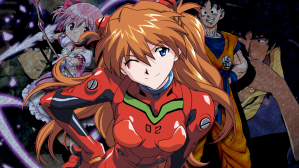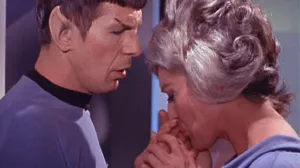“Guilty pleasure” series occupy a weird place for anime fans. People simultaneously seem to want every anime to be a game-changer and a milestone for the medium, while also knowing very well that there’s value in a series that doesn’t demand too much of viewers. Even the term “guilty pleasure” has its baggage: what exactly makes the pleasure guilty?
Videos by ComicBook.com
A “guilty pleasure” anime isn’t necessarily shallow, and “guilty pleasure anime” isn’t synonymous with “bad anime”. So, what is a guilty pleasure anime? Something, maybe, that rewards viewers in ways some would call “cheap”: hype, easy-to-follow shonen storytelling; appealing to fan-service or “dirty” humor; wish-fulfillment protagonists; things of that ilk. All it means is that, for one reason or another, these are the best anime you would feel the need to disclaim just as you claim them.
1) Food Wars! Shokugeki no Soma

A common theme you’ll find scattered throughout this list is fan service. Just let it be a testament to our cultural tastes that sex and toilet humor are more shameful than a pile of severed limbs, take a breath, and move on. Food Wars! is a great entry with a goofy premise and marvelous execution, which has been maligned, in part, specifically because of its ecchi elements. Orgasmically good food (literally) sits at the center of this anime—and it handles that idea brilliantly.
On every other level, Food Wars! is a thoroughly enjoyable shonen anime with a lovable and familiar protagonist: Souma Yukihira, a boy who wants to become a cook who can surpass his father. It uses the shonen and ecchi foundations to make food feel like a full-on battle manga. The result is a truly engaging watch that’s actually groundbreaking, enjoyable, and hunger-inspiring.
2) Fairy Tail
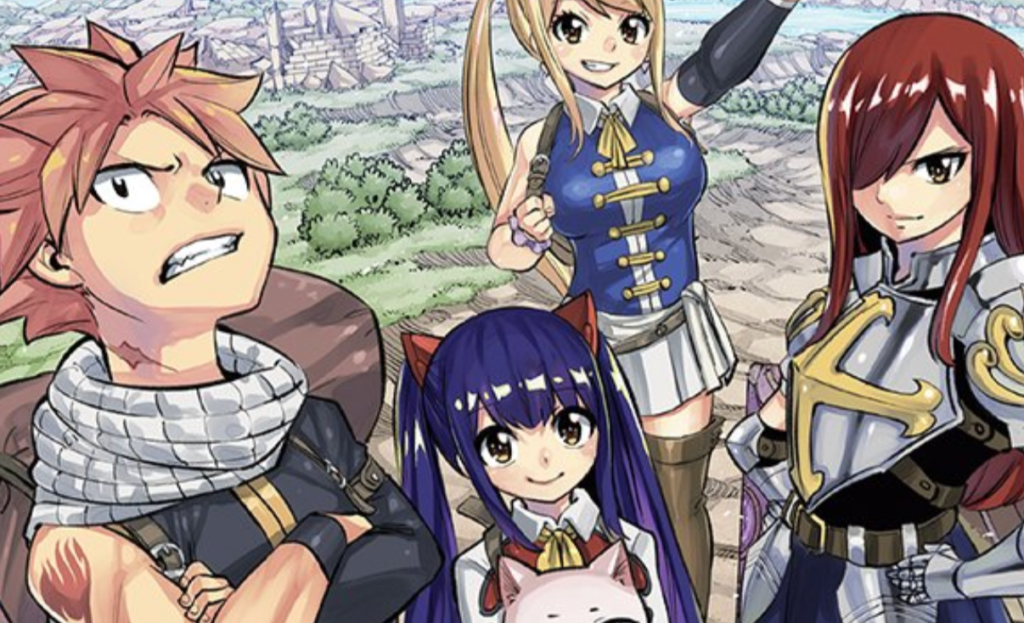
Fairy Tail is a lighthearted shonen battle manga with a high-fantasy setting where Natsu Dragneel, a wizard from the Fairy Tail guild, goes on a quest for his missing father and makes countless friends along the way. Heavy fan service, simplistic writing, and an unwavering devotion to gag comedy have led the series not to be taken seriously—even though, once upon a time, it was one of the most popular shonen series around. Some of the critiques of Fairy Tail are more granular. For example, even in the milieu of shonen battle manga where the “power of friendship” trope lives strong, Fairy Tail’s deployments have been called excessive.
But at the end of the day, is there anything wrong with a shonen that doesn’t bother trying to be edgy, pensive, and high-stakes? Fairy Tail‘s fans remain devoted because, at the end of the day, it’s just a fun show to watch that doesn’t ask a whole lot of you. Even if it’s got a few warts (particularly in its writing and animation quality in its latter half), it’s beloved for a reason.
3) KonoSuba: God’s Blessing on This Wonderful World!

Really, the same could be said for KonoSuba. It’s an isekai where shut-in Kazuma Satou is reincarnated into a game-like world by a goddess, Aqua, whose company he demands in defeating the Demon King. KonoSuba is a full-fledged comedy from the start, but it grows into its potential as Kazuma and Aqua try to recruit other party members and inadvertently get dragged into battle again and again.
KonoSuba is a fan-service heavy anime, but it’s not nearly as explicit as many of its comrades in scantily-clad arms. Some might even say that KonoSuba uses its fan service pretty tastefully. Nonetheless, between its perverted slant and its isekai premise, it’s a series most people wouldn’t want to tell their friends about. At the end of the day, it’s genuinely funny and a blast to watch; there’s a reason it has such a dedicated fan base.
4) High School DxD
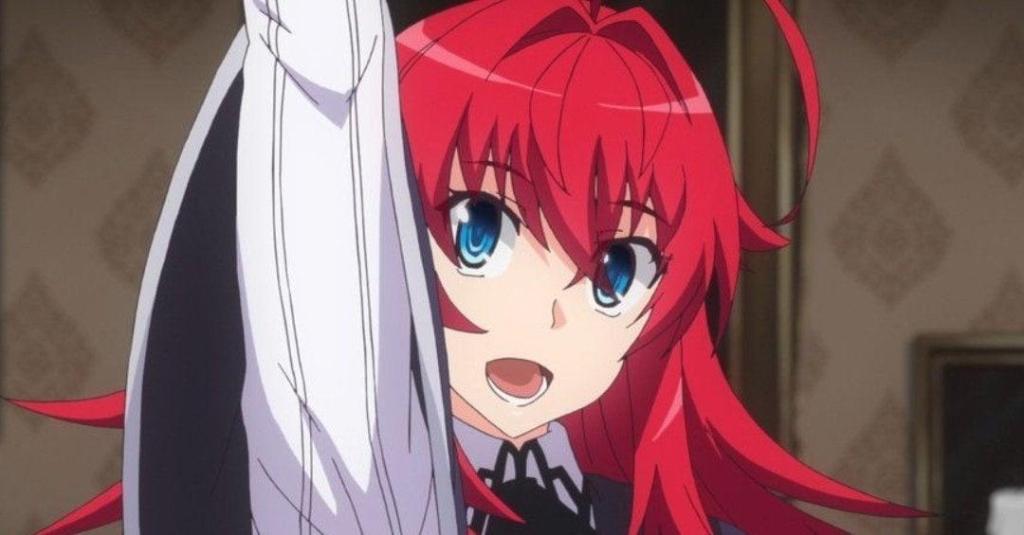
This space was a toss-up between To Love-Ru! and High School DxD, with the latter winning out by simply having a larger fan base today. Both scratch a similar itch, though: they’re fan-service–rich action anime—a genre which, if you’re unfamiliar, has a surprising number of representatives: Rosario + Vampire, Highschool of the Dead (considerably tamer), and The Testament of Sister New Devil are just a smattering of likewise selections. What sets High School DxD apart is the unexpectedly strong plot; even today, fans will insist that High School DxD absolutely clears its ecchi competition.
You might assume that, just because anime like it are heavy on the fanservice, they don’t have a lot to offer. For the right person, though, you’d be wrong. They can be compelling, funny, and entirely enjoyable watches. They may not be at Death Note levels of narrative convolution, but they make just enough of an effort that you can earnestly say you’re “watching it for the plot”—but even if you aren’t, we’re not in the business of snitching.
5) School Days

School Days offers something totally different from the previous selections on this list. It’s a slice-of-life harem based on an erotic visual novel from 2005, where high-schooler Makoto Itou moves to a new city and develops a crush on Kotonoha Katsura. Soon, Makoto meets Sekai Saionji in his homeroom; she initially befriends the two, but things quickly devolve into a love triangle situation.
There are a lot of reasons that School Days doesn’t resonate with everyone: it’s slow; things don’t always make sense; and its characters are very far from likable. This goes before its forays into the explicit and shocking, which shouldn’t be spoiled no matter what. Regardless, School Days is a strangely enrapturing series. Whether one is attracted or repelled by its eerie and outright-weird elements melts into a matter of perspective, and countless fans love its resistance to typical harem storytelling.
6) Rent-A-Girlfriend
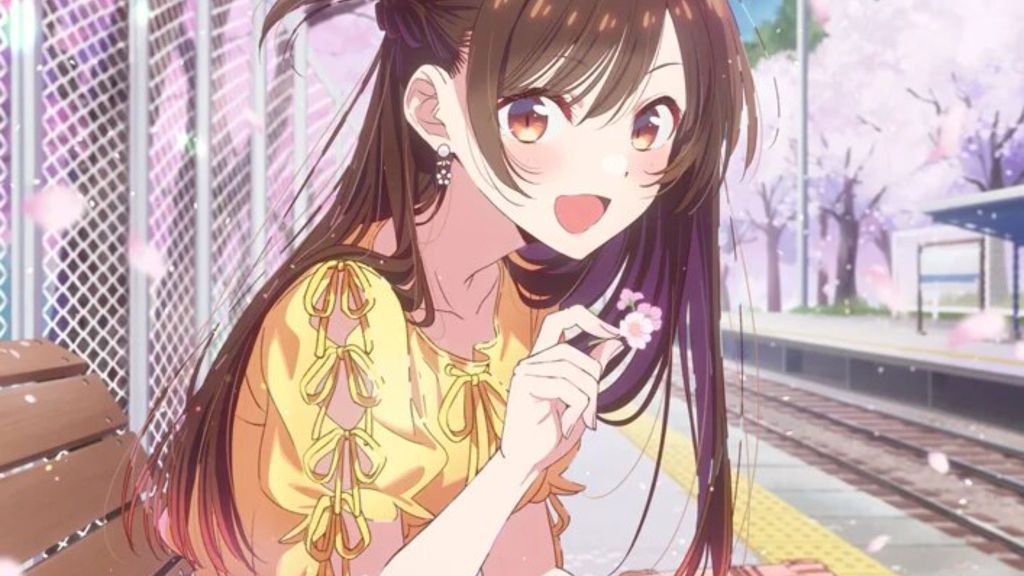
Rent-A-Girlfriend’s recent development has found the series mired in controversy thanks to a massive plot twist that, like a guerilla booby trap, covers over the surface of a rabbit hole you absolutely don’t want to fall down. But, on second thought—don’t you? Countless die-hards of the series have answered with a resounding “yes”, at least.
The premise of Rent-A-Girlfriend is in the name: protagonist Kazuya is feeling down after a break-up and decides to rent a girlfriend, Chizuru. Things fall into place so that Kazuya has to keep renting Chizuru to keep up appearances. Et voilà: the foundation of a harem romantic comedy that, for years now, has found itself dissolved in an inhospitably confused solvent of skepticism mixed with unrepentant fandom. The fans are there for a reason: the anime and manga alike are beautifully executed, and the writing itself is solid, surprising, and habit-forming.
7) Prison School
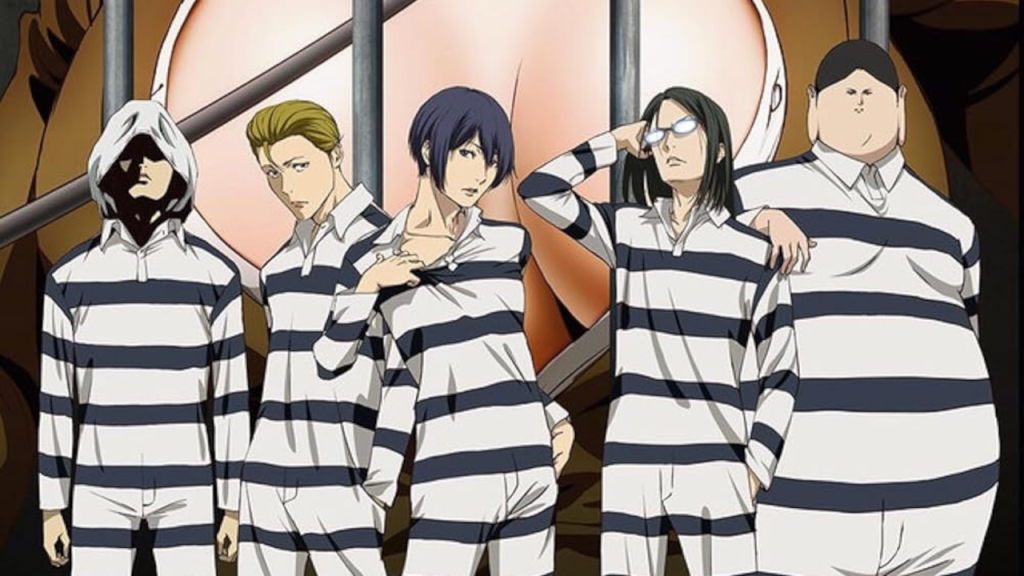
Suffice to say: hoo boy. Prison School is labeled as a “sex comedy”; it does fit that mold, but that isn’t nearly expressive enough. It’s a series designed to divide the people who experience it. In Prison School, a small group of boys wind up at a strict all-girls school—an extremely strict all-girls school, where they’re in the grips of three student council members. Perhaps you can already see where this is going: there’s a lot of sadomasochism, power plays, and comedy built around both. Ultimately, the more you say about Prison School, the more is given away about it.
That’s a tragedy, since the allure of the series rests largely in its shock value and transgression. It can be very funny, certainly. It’s also perverted—and not “perverted” in the sense of making your grandmother blush, but true, honest-to-God perversion that would make her kick you out. Prison School isn’t a work of genius, but it’s hilarious, fatally (frightfully) erotic, and brilliantly different. And even if you don’t say it out loud, that whisper of curiosity at the edge of your mind right now is exactly the driving force that makes people die-hard fans.
8) Mirai Nikki
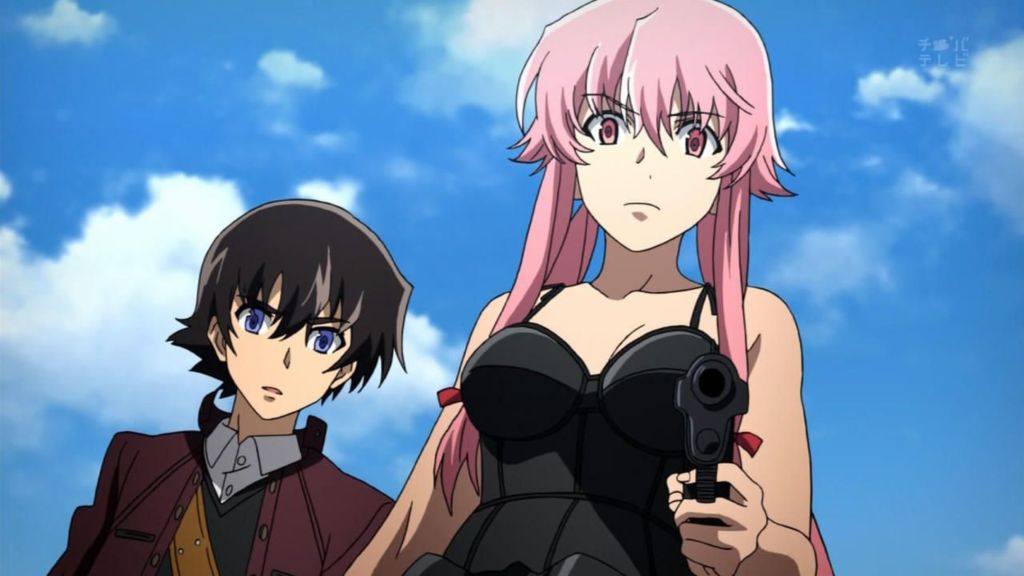
Mirai Nikki (known just as well by its English title, Future Diary) is an anime that receives a lot of hate, partly because most people just don’t connect with it. In Mirai Nikki, the loner high-schooler Yukiteru is thrust into a survival game when his phone is turned into a Future Diary, capable of predicting the future up to 90 days in advance. The victor of this survival game becomes the next deity. He’s joined on this mission by Yuno, an archetypal example of a yandere: obsessive, stalking, and unpredictable.
Many people are put off by Future Diary because it’s full of decisions that don’t make a lot of sense, both on the part of the characters and the writers. That’s the rationale, anyhow; patient and open-minded viewers who look beyond the surface, though, always seem to find a charming series with an eerily thoughtful psychology about its characters. Future Diary, like School Days, has gained a reputation for being centered around its biggest twists. But also like School Days, the series gives you what you give it, and it’s just as good as you’re willing to let it be.
9) Diabolik Lovers
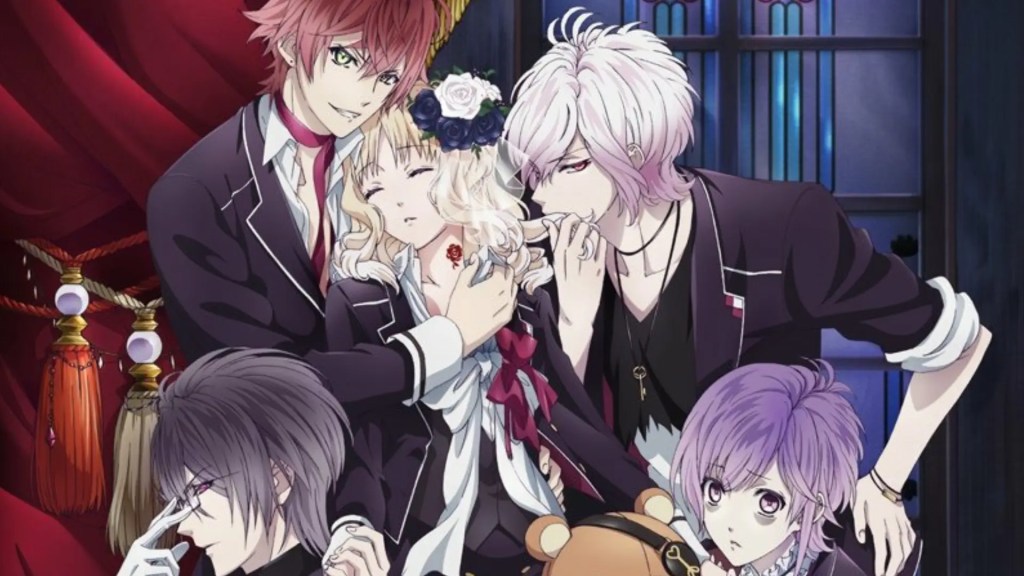
Diabolik Lovers was originally a dating sim (“otome game”), and if you’re familiar at all with otome game adaptations, you know exactly why they’re guilty pleasure material. Diabolik Lovers sees Yui Komora move to a secluded estate; to her surprise, six vampire brothers—the Sakamaki clan—live there, too. The series follows their toxic games of seduction as each tries to make her his bride.
Diabolik Lovers can’t exactly be called a “good” anime, by most metrics. It’s important to remember, though, that the standards for “good anime” aren’t exactly propped up by Diabolik Lover‘s target demographic: “the girlies”, so to speak. Released in the West at a time when shojo reverse harems were few and far between, Diabolik Lovers is an escapist fantasy that evokes Twilight with its dubious relationships, exploring dynamics that (like it or not) have pervaded smut and erotica targeting women for centuries. Its cult status is unsurprising, extending well beyond the condescending take of Diabolik Lovers simply being “so bad, it’s good”.
10) Darling in the FranXX
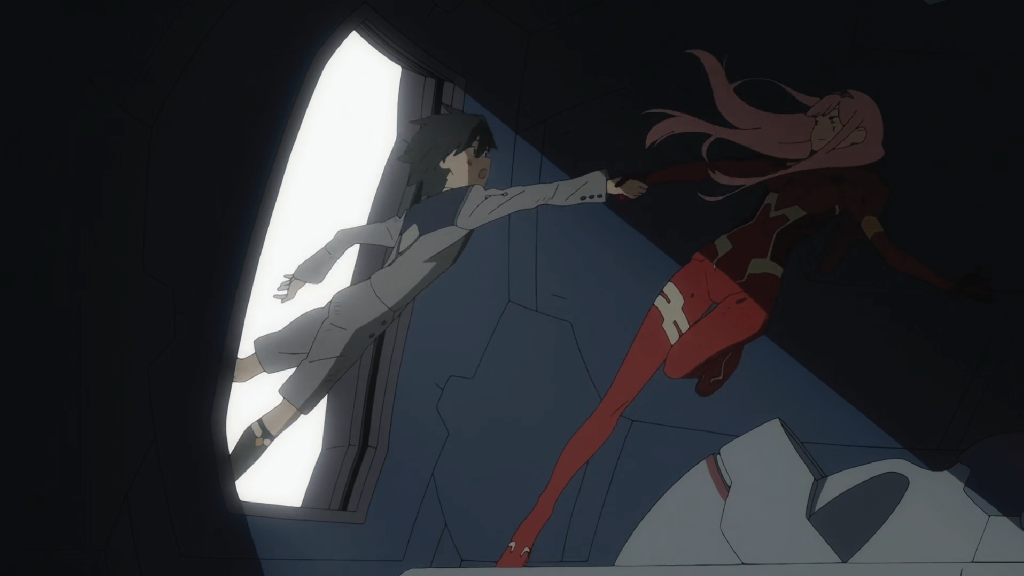
Darling in the FranXX is a risqué mecha anime that centers on two young mecha pilots (Hiro and Zero Two), the young squad of mecha pilots around them, and the dangerous dystopian universe rearing them all. Darling in the FranXX is sometimes compared unfavorably to mecha anime like Gundam and Neon Genesis Evangelion, called a series that strips all the pensive and thoughtful parts of such anime away and just replaces them with fan service.
In reality, this equation doesn’t make sense; fan service only cancels out the capacity for provocative themes if you think that something being serious or thoughtful precludes the possibility of sensuality. That prudishness is unfortunately very common—but it’s also a core ingredient for guilty pleasure! Below the surface, Darling in the FranXX teems with interesting themes, a provocative plot, and a romance fit for our Valentine’s Day 2025 anime list. It takes you as seriously as you take it, and it’s well worth a watch.
Ultimately, a lot of anime suffer from viewers’ insecurities. It takes courage to watch and enjoy something on its own merits, especially in a world where you’re expected to constantly produce piping hot takes about media saturated with its own piping hot takes. None of the entries here are perfect, but none of them are fatally flawed, either—aside from the fact that they’re basically fish out of water.
Maybe the point of a “guilty pleasure” anime is that you don’t exactly want to broadcast it in a comments section. However, we’d sure love it if you did! Drop a comment below if there’s a guilty pleasure you think others don’t understand and need to give a try.

